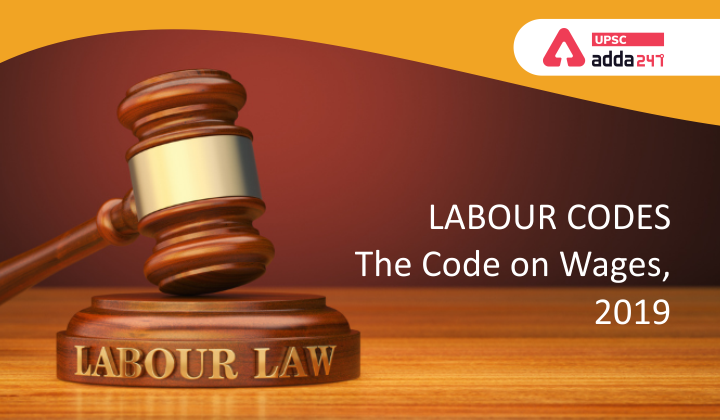- Labour falls under the Concurrent List of the Constitution. Therefore, both Parliament and state legislatures can make laws regulating labour.
- The central government has stated that there are over 100 state and 40 central laws regulating various aspects of labour such as resolution of industrial disputes, working conditions, social security and wages.
- The Second National Commission on Labour, 2002, headed by Ravindra Verma, recommended consolidation of central labour laws into broader groups such as
- industrial relations,
- wages,
- social security,
- safety, and
- welfare and working conditions
to ease of compliance and ensure uniformity in labour laws.
- In 2019, the Ministry of Labour and Employment introduced four Bills on labour codes to consolidate 29 central laws.
- These Codes regulate:
- Wages
- Industrial Relations
- Social Security
- Occupational Safety, Health and Working Conditions.
- In this article, we will restrict our discussion to Code on Wages. Rest of the codes will be discussed in the separate articles.
The Code on Wages, 2019
- It seeks to regulate wage and bonus payments in all employments where any industry, trade, business, or manufacture is carried out.
- The Code replaces the following four laws:
- The Payment of Wages Act, 1936
- The Minimum Wages Act, 1948
- The Payment of Bonus Act, 1965, and
- The Equal Remuneration Act, 1976.
- Coverage:The Code will apply to all employees. The central government will make wage-related decisions for employments such as railways, mines, and oil fields, among others. State governments will make decisions for all other employments.
- Wages include salary, allowance, or any other component expressed in monetary terms. This does not include bonus payable to employees or any travelling allowance, among others.
- Floor wage:According to the Code, the central government will fix a floor wage, taking into account living standards of workers. Further, it may set different floor wages for different geographical areas.
- Fixing the minimum wage:The Code prohibits employers from paying wages less than the minimum wages. Minimum wages will be notified by the central or state governments
- Overtime:The central or state government may fix the number of hours that constitute a normal working day. The overtime wage must be at least twice the normal rate of wages.
- Deductions:Under the Code, an employee’s wages may be deducted on certain grounds. These deductions, however, should not exceed 50% of the employee’s total wage.
- Determination of bonus:All employees whose wages do not exceed a specific monthly amount, notified by the central or state government, will be entitled to an annual bonus. The bonus will be at least: 8.33% of his wages, or Rs 100, whichever is higher. An employee can receive a maximum bonus of 20% of his annual wages.
- Gender discrimination:The Code prohibits gender discrimination in matters related to wages and recruitment of employees for the same work or work of similar nature.
- Advisory boards:The central and state governments will constitute advisory boards. The Central Advisory Board will consist of:
- employers,
- employees (in equal number as employers),
- independent persons, and
- five representatives of state governments.
- State Advisory Boards will consist of employers, employees, and independent persons.
- Further, one-third of the total members on both the central and state Boards will be women.
- Offences: Penalties vary depending on the nature of offence, with the maximum penalty being imprisonment for three months along with a fine of up to one lakh rupees.
Also Read: Strategy to clear EPFO EO in last 25 days.




 TSPSC Group 1 Question Paper 2024, Downl...
TSPSC Group 1 Question Paper 2024, Downl...
 TSPSC Group 1 Answer key 2024 Out, Downl...
TSPSC Group 1 Answer key 2024 Out, Downl...
 UPSC Prelims 2024 Question Paper, Downlo...
UPSC Prelims 2024 Question Paper, Downlo...





